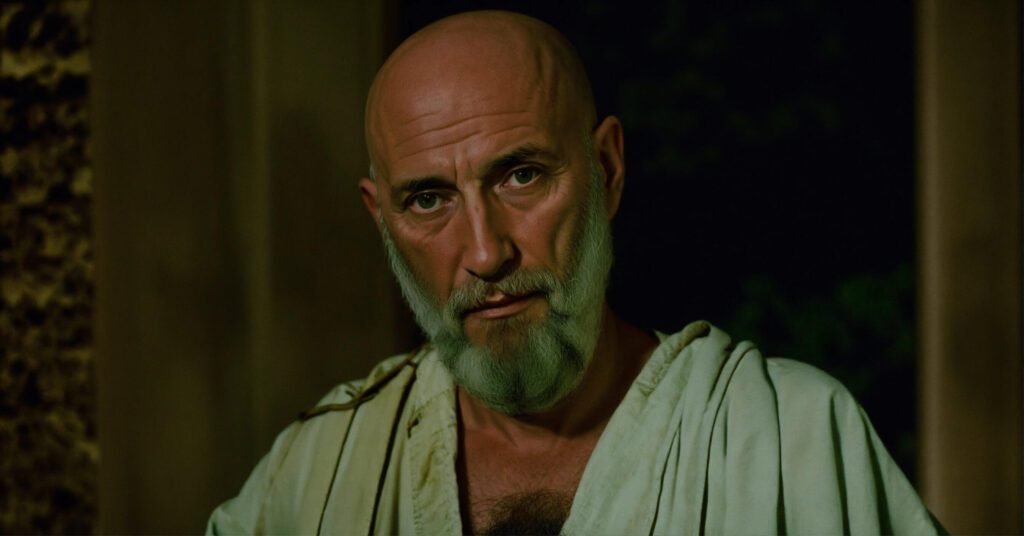Hippocrates, the father of medicine
On the other hand, Hippocrates’ ancient medicine dealt with the complex phenomenons of individual human bodies but actively embraced the academic methods and principles of higher science in time to universal sciences such as philosophy and astronomy.
Medicine originally deals with the individual. Medicine does not deal with “human,” but with “human Socrates.” Therefore, medicine has no choice but to rely on the observation and experience of changes in the body, and establishes a relatively reliable medical system while collecting and comparing such experiences.
However, empiricism in medicine is not simple empiricism that rejects all reasonable control over the data experienced. Hippocrates is also a descendant of ancient science and philosophy, born in the tradition of ancient science.
He maintained the specificity of medicine with individual science and explored it as a faithful empiricist, but instead of staying there, he tried to secure theoretical and methodological rationality to convert his experiences into scientific knowledge.
Through these efforts, he was able to approve the system of science that could naturally increase the accuracy of diagnosis and treatment and pay attention to the achievements of higher science.

Modern doctors, not descendants of Hippocrates.
To modern doctors, the Hippocrates approach may seem like a simple “old” doctor who lacked the self-awareness of a scientist, relying on thought and prejudice given before observation, but in the ancient scientific tradition, Hippocrates was a representation of a true doctor who most comprehensively and most passionately pursued all the tasks he had to do as a doctor for the scientific rigor of medicine.
Pythagoras, as I mentioned earlier, was a philosopher, a mathematician, and a doctor at the same time.
Instead of settling for philosophy and mathematics, he wanted to apply theoretical achievements to individual cases such as the human body.
Because I thought that if the human body was also part of the world, health and disease in the human body could also be explained by conflicting factors based on limitations and infinity. So he saw the world, for example, as a distribution of light and darkness, hot and cold, dry and humid.
The four seasons also responded to elements of dryness, warmth, humidity, and coldness. I described health and disease as the harmony and dissonance of these conflicting elements that ultimately make up the human body.
This deductive approach is also found in Croton’s Alkmion, a disciple of Pythagoras. Alkmion is known to be mainly engaged in medical exploration rather than natural philosophical exploration, but like his teacher, he explains health and disease as a result of a harmonious mixture and dissonance of the conflicting properties of wet and dry, cold and hot, bitter and sweet.
For Pythagoras and Alkmion, the final stopover of the philosophical quest was medicine. What this means is self-evident. The accuracy of medicine has no choice but to rely on the rigor of the natural philosophical principles that medicine presupposes.
In other words, the rigor of medicine can never be secured on its own, but only when the individual phenomenon of the human body meets the philosophical explanation of nature, including the human body, and can be explained from it.
The insight of these ancient natural philosophers has implications that can never be underestimated at the level of modern science. The study of individual phenomena that arise from an inclusive association as a whole is that it can never be scientific without the implicit inclusion of individuals and the consideration of the individual as a whole as

Hippocrates sought natural healing of the human body
Medicine is one of the most uncertain disciplines, directly dependent on experience and observation. In this sense, modern medicine, which claimed to be an independent science, found its authority in unbiased observations and experiments, but ancient medicine did not have these modern limitations from the beginning.
Without knowledge of natural philosophy or astronomy, there was a perception that “medicine was incomplete and incompetent.” Hippocrates also sought to establish medicine as the last science in connection with the first sciences under the direct influence of early natural philosophy.
Hippocrates’ environmental medicine was the culmination of this effort. Hippocrates did not neglect the methods of experimentation and observation, but because he was a rationalist who sought to elevate a simple factual experience into a scientific experience in theory and how to reasonably organize it.
In ancient Greece, medicine was not a profession unlike it is today. Doctors didn’t have to have a legally certified license to treat patients, and anyone could treat them.
He was in a kind of rivalry with the doctors of the day. In a situation where the status of a professional doctor is faltering, doctors say, “There’s something like medicine. And by highlighting that it’s a technology that implies true technology and function and science, it’s a technology that makes itself unprofessional.

Hippocrates led health care from superstition to science
Hippocrates was one of them, and the first element of Hippocratic rationalism was complete
independence from superstition and magic. He rejected their impure intentions without harming the religious sentiment of the time about the divine.
Under the guise of ignorance of the divine and rejecting all shamanistic attempts to understand the disease, we were able to firmly establish the naturalistic basis of medicine, and the second element was the principle of increasing methodological rigor, and he made active use of theoretical knowledge of the human body and nature as a disease. It’s wind and wind.
In Climate science, I asked them to learn things like astronomy in advance. Hippocrates actively accepted this higher science as the basis and the basis for the rigor of medicine, by securing the discipline of the human body and increasing the rigor of medical explanation and observation from it.
The end of the rational element of Hippocrates’ medicine is the principle of maximizing theoretical efficiency for the diagnosis and treatment of diseases, and one of Hippocrates’s responsibilities as a physician is to predict what will come from the insights from the rational factors listed above: In ancient Greece, medicine was not a professional profession, unlike today.
Doctors didn’t have to have legal qualifications for treatment, He was in a kind of competition with the doctors at the time. And by highlighting that it’s a technology that implies true technology and function and science, it can make itself unprofessional.
I naturally felt the need to differentiate myself from non-scientific doctors. Hippocrates was one of those people. The first element of Hippocrates’ rationalism was complete independence from superstition and magic.
That didn’t mean he completely ruled out the divine. He criticized the cult doctors’ profanities against the gods and rejected their impure intentions.
He was able to firmly establish the naturalistic basis of medicine without harming the religious sentiment of the divine, but by rejecting all naturalistic attempts to understand the disease under the guise of ignorance of the divine.
The second factor is the principle of increasing the technicality of the method. He actively used his theoretical knowledge of the human body and nature to explain diseases.
He asked us to study human-related subjects such as geology, politics, climatology, and astronomy in advance when dealing with patients, and he actively introduced the achievements of these studies into clinical treatment. Hippocrates actively accepts this higher science as the foundation and basis for the rigor of medicine.
He believed that the human body could establish the science of medicine by securing a methodology and increasing the rigor of medical explanation and observation. The last of the rationalistic elements of Hippocrates’ medicine is the principle of maximizing theoretical efficiency for the diagnosis and treatment of diseases.
One of Hippocrates’ responsibilities as a doctor is to predict what will happen with the insights gained from the aforementioned rationalistic elements.






